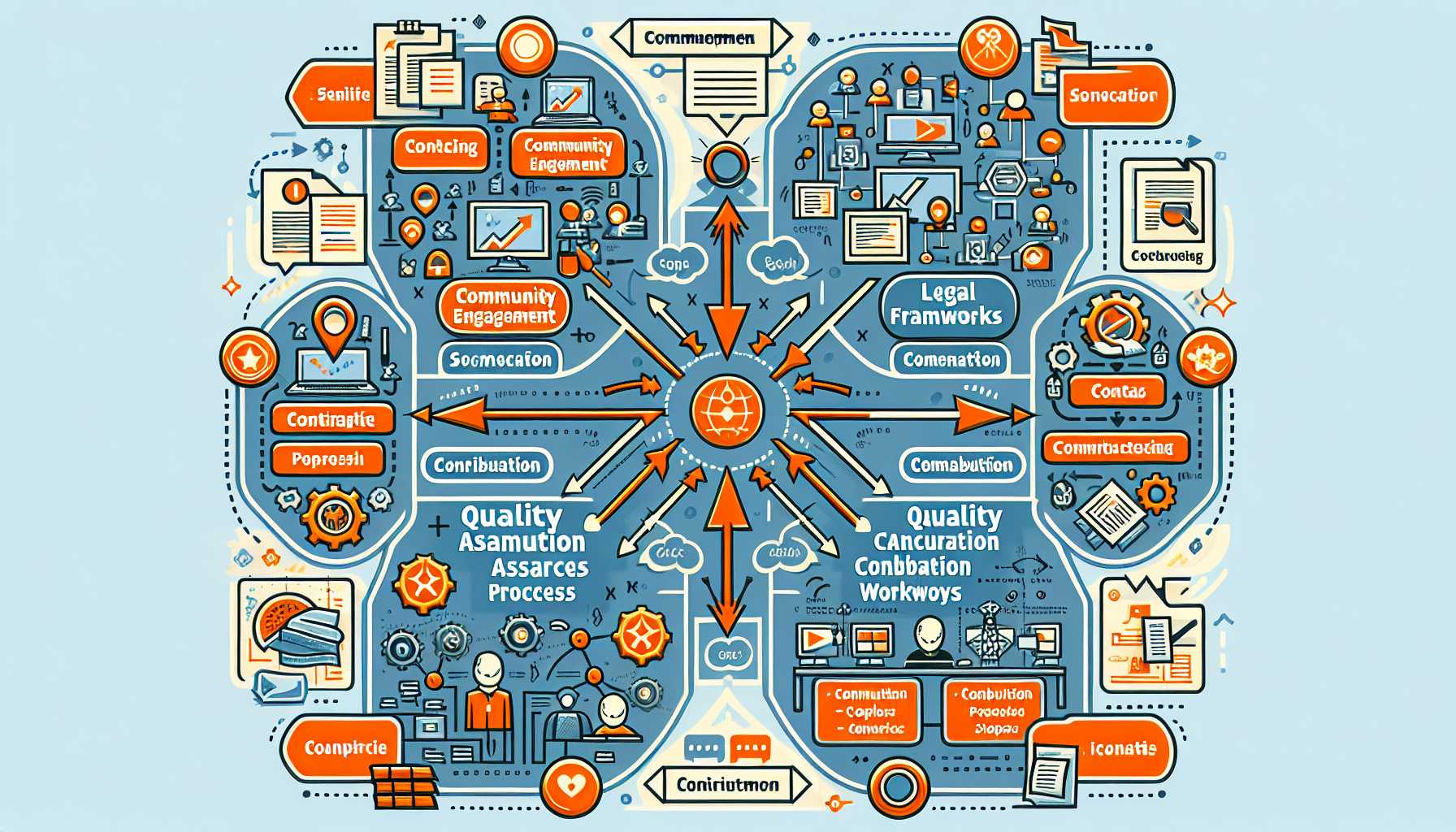The Unique Challenges of Managing Open-Source Software Projects
Throughout my career in product management, I’ve had the opportunity to manage several open-source software (OSS) projects. These experiences were both exhilarating and challenging, offering a unique perspective into the dynamics of community-driven development. Today, I’m sharing my insights into the unique challenges of managing OSS projects.
The Open-Source Ecosystem: A Different Beast
Open-source projects are radically different from proprietary development endeavors. They leverage the collective intelligence and contributions of a global community, which, while powerful, introduces a set of unique challenges.
Chapter 1: Setting the Open-Source Foundation
Early in my journey, I learned the value of a solid foundation for an OSS project. A clear project scope, governance model, and contribution guidelines are mandatory. Tools like CONTRIBUTING.md and GOVERNANCE.md became my best friends, setting the stage for effective collaboration.
Realization: Once, a talented contributor pushed an impactful new feature but in a way that wasn’t scalable. It took immense effort to refactor while maintaining community goodwill. We responded by improving our documentation on coding standards and architectural principles.
Chapter 2: Navigating the Bazaar
The saying goes, “Given enough eyeballs, all bugs are shallow.” However, managing the flood of input from this ‘bazaar’ style of development requires a strong roadmap and backlog grooming processes. My teams adopted Agile methodologies even within the OSS model to maintain focus and direction.
Experience: An OSS project I led saw a surge of feature requests that threatened to derail our roadmap. We countered this by implementing a feature voting system, allowing the community to prioritize what mattered most to them.
Chapter 3: Fostering a Thriving Community
Community is the lifeblood of any OSS project. I’ve prioritized fostering a culture of inclusion, recognition, and empowerment. This included:
- Regularly engaging with the community through forums and social media
- Hosting virtual meetups and hackathons to fuel innovation and camaraderie
- Recognizing contributions, no matter how small, to encourage continued involvement
Personal Story: When I took on a struggling OSS project, I noticed that contributors felt underappreciated. By implementing an automated ‘Contributor of the Month’ feature, we revitalized engagement and attracted new talent.
Chapter 4: Licensing and Legal Pitfalls
Navigating the legal landscape of OSS projects can be a minefield. Licensing choices have far-reaching implications, and having a reliable legal partner to guide these decisions has been invaluable.
Challenge: Legal ambiguity once nearly compromised a project’s viability. A contributor’s employer claimed ownership of their contributions, causing turmoil. We learned to enforce signed Contributor License Agreements (CLAs) thereafter to protect the project and its users.
Chapter 5: Maintaining Quality Amidst Chaos
Quality assurance in OSS projects is particularly tough due to the variety of contributions. Establishing a robust quality control process has been essential. Continuous Integration (CI) systems, code review practices, and a core team responsible for maintaining standards kept us on track.
Insight: A seemingly innocent bug fix once caused a significant regression. This prompted the introduction of mandatory code reviews and an automated CI pipeline, which significantly improved our release stability.
To summarize, managing open-source projects demands a blend of technical savvy, strategic vision, and community management skills. The challenge is formidable, but the rewards are immeasurable: a dedicated community, innovation at breakneck speeds, and the satisfaction of contributing to the greater good.
Managing OSS projects has been one of the most rewarding experiences of my career. It’s a wild ride, but for those who dare, the impact and learning are unmatched. Embrace these challenges, and you’ll emerge a seasoned veteran in the open-source arena.

